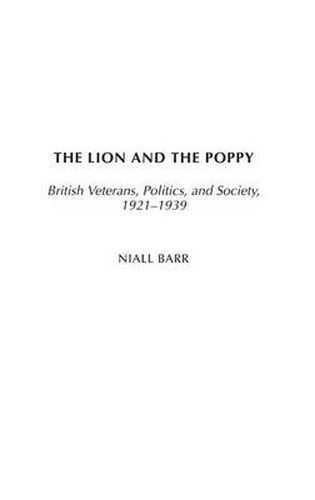Readings Newsletter
Become a Readings Member to make your shopping experience even easier.
Sign in or sign up for free!
You’re not far away from qualifying for FREE standard shipping within Australia
You’ve qualified for FREE standard shipping within Australia
The cart is loading…






An illuminating study of the British veterans’ movement, which explains how the British Legion became a national institution In the years following World War I, the British Legion became a symbol for service, tradition, and stability in British life. In the war’s aftermath, many veterans’ organizations on the continent became violently politicized. However, the competing groups in Britain came together in 1921 to form the unified and overtly non-political British Legion. Its mission and identity was founded upon its members’ experience of the Great War. The Legion’s belief that the comradeship of the trenches could transcend all barriers of rank and class was a reflection of the starting changes stirred by the Great War. Instead of succumbing to bitterness and alienation, the British Legion became a positive social force in the 1920s. Based on extensive original research, this is the first modern work to take an objective and analytical view of the British Legion. By examining each major facet of the British Legion in turn, Barr draws a convincing picture of this organisation that became a national institution. Through its branches and clubs, fund-raising activities, political pressure, and work for peace, the British Legion became part of the fabric of British life and exerted a powerful and profound influence upon British society and politics. A better understanding of the legion and its social impact fills a real gap in our understanding of British life and society during the inter-war years. Assesses the influence of the British Legion on UK society between the wars Compares the British veterans’ organisations to their more politicised continental counterparts
$9.00 standard shipping within Australia
FREE standard shipping within Australia for orders over $100.00
Express & International shipping calculated at checkout
An illuminating study of the British veterans’ movement, which explains how the British Legion became a national institution In the years following World War I, the British Legion became a symbol for service, tradition, and stability in British life. In the war’s aftermath, many veterans’ organizations on the continent became violently politicized. However, the competing groups in Britain came together in 1921 to form the unified and overtly non-political British Legion. Its mission and identity was founded upon its members’ experience of the Great War. The Legion’s belief that the comradeship of the trenches could transcend all barriers of rank and class was a reflection of the starting changes stirred by the Great War. Instead of succumbing to bitterness and alienation, the British Legion became a positive social force in the 1920s. Based on extensive original research, this is the first modern work to take an objective and analytical view of the British Legion. By examining each major facet of the British Legion in turn, Barr draws a convincing picture of this organisation that became a national institution. Through its branches and clubs, fund-raising activities, political pressure, and work for peace, the British Legion became part of the fabric of British life and exerted a powerful and profound influence upon British society and politics. A better understanding of the legion and its social impact fills a real gap in our understanding of British life and society during the inter-war years. Assesses the influence of the British Legion on UK society between the wars Compares the British veterans’ organisations to their more politicised continental counterparts